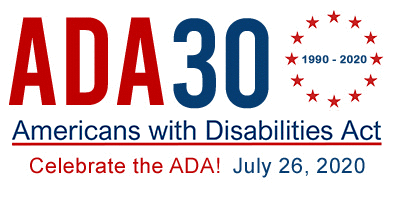 Title I of the Americans with Disabilities Act prohibits discrimination against people with disabilities. This means that individuals with disabilities must be given equal access to the job application and hiring processes and must also be given the same consideration and benefits as others when they have obtained the job.
Title I of the Americans with Disabilities Act prohibits discrimination against people with disabilities. This means that individuals with disabilities must be given equal access to the job application and hiring processes and must also be given the same consideration and benefits as others when they have obtained the job.
Sometimes achieving this goal of equality requires that employers provide reasonable accommodations to those with different physical or mental abilities and needs. Reasonable accommodations are there to even the playing field for people with disabilities in the workforce – they are simply methods and objects that allow people with disabilities the tools they might need to get a job done and do it well. After all, a person who needs a screen reader to access a computer is fundamentally in the same boat as a person who needs a ladder to access a book from a high shelf – they only need the proper tools to get the job done.
A study conducted by the Job Accommodation Network (JAN) between 2004 and 2014 found that employers and employees, with and without disabilities, profit from workplace accommodations.
Among their findings were that employers and employees experience numerous advantages by making accommodations for people with disabilities. Employers see valuable employee retention, productivity, company morale, and profitability gains. Employees experience improved interactions with co-workers and customers, increased safety, and fewer sick days.
A person who doesn’t speak as clearly as another person doesn’t necessarily lack brilliant thoughts and excellent skills in one area or another. Merely because a person uses a hearing aid or a wheelchair doesn’t mean they are incapable of performing many of the same jobs a hearing or non-disabled person can.
Thanks to the ADA, people with disabilities–who possess many other abilities–have equal access to finding the independence and self-worth afforded by employment.
Celebrating 30 Years of the ADA
Join the Employer Assistance and Resource Network on Disability Inclusion (EARN) on July 24, 2020, from 12:00 to 1:00 pm (CT) for a webinar featuring a panel discussion with members of the ADA Generation sharing their experiences in the workplace.
Panelists will also discuss best practices for recruiting and hiring young people with disabilities, such as offering internship, apprenticeship, and mentorship opportunities, and how to ensure these programs are accessible for everyone. In addition, a representative from the Institute on Disability at the University of New Hampshire will explore key findings from the new Kessler Foundation survey on Experiences of the “ADA Generation” in the Workplace.
Thank you for your participation. Registration is closed.